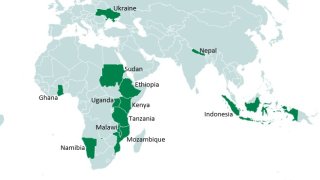Statistics Norway has worked with international development cooperation for more than 50 years. The purpose is to contribute to the development of good national statistical systems and better capacity for producing and using official statistics in partner countries. In the long-term, the aim is to contribute to insight into social development and provide a common basis for public discourse and decisions-making.
The division for international development cooperation is responsible for the coordination of these projects within Statistics Norway. Staff from all departments and all divisions in Statistics Norway contribute to the projects, with about 80-100 staff members participating in projects every year, working with partner organisations in their field of expertise.
Principles
To achieve the best possible results in our projects, Statistics Norway has developed a set of principles that we strive to meet in statistical development cooperations:
- Shared ownership
- Long-term perspective
- Cooperation and coordination
- Flexible and agile approach
The main challenge
Many low- and middle-income countries face a number of problems in providing statistics in order to meet the criteria of the UN fundamental principles for official statistics. They often find themselves caught in a vicious cycle where under-investment in national statistical systems restricts their activities. This results in poor quality data and dissatisfied users who do not want to use statistics in policy-making processes. Consequently, the lack of demand for data means that fewer resources are made available for statistical production and quality control. Trying to break this circle, Statistics Norway is contributing to the development of statistical systems and capacity-building in sister organisations in developing and transition countries.




